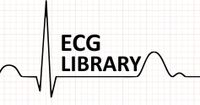Explore web search results related to this domain and discover relevant information.
There are also nonmonetary advantages, including gaining transferable workforce skills and being more active citizens, experts say. There are numerous higher education options, from credentials such as badges and certificates to a range of college degree levels.
To be an air traffic controller, for instance, an applicant needs at least an associate degree, while a candidate pursuing dentistry must earn a professional degree, such as the Doctor of Dental Surgery (D.D.S.).They provide outstanding training in a very specific discipline." According to the National Center for Education Statistics, 49% of Americans between the ages of 25 and 29 had an associate degree or higher in 2021.A full-time student can expect to finish a bachelor's degree within four years, though that length of time varies by program. A bachelor's degree – which is offered at four-year institutions and a small number of community colleges – typically requires 120 credit hours, sometimes more and occasionally fewer.But enrolling directly into a master's program after graduating with a bachelor's degree is not always necessary. Experts advise students to first ask themselves what steps are required to achieve their career goals and why they want to earn a particular degree.


In the Information Technology, B.S. you’ll learn to design, implement, and evaluate computer-based systems and programs to solve an organization’s challenges. You can also tailor your degree to build skills in business, telecommunications, digital media, and database management to suit ...
In the Information Technology, B.S. you’ll learn to design, implement, and evaluate computer-based systems and programs to solve an organization’s challenges. You can also tailor your degree to build skills in business, telecommunications, digital media, and database management to suit your goals and interests.Get even more out of your New York Tech experience in this selective program that provides more immersive opportunities for research, mentoring, career planning, and leadership development through all four years of study. ... U.S. News & World Report, 2025 · First-time, full-time, degree-seeking New York Tech students receiving some form of financial aidInternational F-1 students who successfully complete this degree program are eligible for an additional 24-month STEM OPT extension to work in the U.S. in an area directly related to their area of study immediately upon completing the customary 12-month post-completion Optional Practical Training (OPT).I’ve learned object-oriented programming with Java; web design with HTML5, CSS, and PHP; database management using MySQL; big data management and analytics using Apache Hadoop; and computer networking skills from the basics of a home network to practices employed by ISPs and large companies. Patrick Modzelewski (B.S. ’20) From focusing on computer security to tailoring your degree through flexible electives, prepare for a successful career in the Information Technology, B.S.

An undergraduate degree is the first level of higher education you pursue after high school. It can take anywhere from two to four years to complete, depending on the program and whether you’re attending full-time or part-time.
Undergraduate programs in NY provide foundational knowledge in a subject area while helping students develop critical thinking, research skills, and real-world readiness. Understanding the main types of undergraduate degrees is the first step toward planning your academic future:Associate Degree (2 years): Awarded by community or junior colleges, this Degree focuses on general education or technical training. It’s a strong option for students looking to enter the workforce quickly or build a foundation for a bachelor’s Degree.It’s designed to prepare students for professional careers or graduate-level study. Many undergraduate degree programs in NY offer both paths.The application process differs from one institution to another, but it typically includes the following steps: ... Some undergraduate degree programs in NY also accept transfer students or adult learners with prior college credit.
That's why our informational articles may reference careers for which we do not offer academic programs, along with salary data for those careers. Cited projections do not guarantee actual salary or job growth. Going to college to earn your degree can help you develop new skills and unlock ...
That's why our informational articles may reference careers for which we do not offer academic programs, along with salary data for those careers. Cited projections do not guarantee actual salary or job growth. Going to college to earn your degree can help you develop new skills and unlock new job opportunities and salary potential.* But what's the best degree for you?Discover the benefits of each type of degree and learn about how the various levels can help you achieve your goals. If you’re just starting out with higher education or want to add education credentials to your real-world experience, an associate degree could be a great fit.Talbot, who earned his associate degree in business administration from SNHU, said that associate degrees are typically 60 credits long and they introduce you to general education courses, electives and topics in your area of study.There are two main types of associate degrees: Associate of Science (AS) and Associate of Arts (AA). An AS degree can prepare you for jobs available across many industries, including marketing, information technology and accounting.

A bachelor's degree (from Medieval Latin baccalaureus) or baccalaureate (from Modern Latin baccalaureatus) is an undergraduate degree awarded by colleges and universities upon completion of a course of study lasting three to six years (depending on the institution and academic discipline).
The two most common bachelor's degrees are the Bachelor of Arts (BA) and the Bachelor of Science (BS or BSc). In some institutions and educational systems, certain bachelor's degrees can only be taken as graduate or postgraduate educations after a first degree has been completed, although more commonly the successful completion of a bachelor's degree is a prerequisite for further courses such as a master's or a doctorate.In countries with qualifications frameworks, bachelor's degrees are normally one of the major levels in the framework (sometimes two levels where non-honours and honours bachelor's degrees are considered separately). However, some qualifications titled bachelor's degree may be at other levels (e.g., MBBS) and some qualifications with non-bachelor's titles may be classified as bachelor's degrees (e.g.Under the British system, and those influenced by it, undergraduate academic degrees are differentiated between honours degrees (sometimes denoted by the addition of "(Hons)" after the degree abbreviation) and non-honours degrees (known variously as pass degrees, ordinary degrees or general degrees).An honours degree generally requires a higher academic standard than a pass degree, and in some systems an additional year of study beyond the non-honours bachelor's. Some countries, such as Australia, New Zealand, South Africa and Canada, have a postgraduate "bachelor with honours" degree.

To save this word, you'll need to log in. ... We all know that you're only three degrees away from all sorts of interesting and even famous people on social media.—Alex Proud
The actor was presented with an honorary degree. ... mathematics : a unit of measure for angles equal to an angle with its vertex at the center of a circle and its sides cutting off ¹/₃₆₀ of the circumferenceRead More Opinions expressed in the examples do not represent those of Merriam-Webster or its editors. Send us feedback. Sinner had left the court for a medical timeout after losing the second set, and was sweating heavily from the first set onward on a pleasant 77-degree evening.These trees will thrive, to a greater or lesser degree, in a number of climates.Note: Crimes are rated by degrees for the purpose of imposing more severe punishments for more serious crimes.

For research or university teaching, the degree is usually a PhD, while applied professional doctorates include the Doctor of Medicine (MD), the Doctor of Education (EdD), and the Juris Doctor (JD), among others.
Doctor of Philosophy, abbreviated PhD, is an advanced academic degree awarded by universities. In the United States, the PhD is the highest degree one can earn and applies to graduates in a wide array of disciplines in the sciences and humanities.The PhD or equivalent has become a requirement for a career as a university professor or researcher in most fields. ... Here are just a few of the non-degree programs you can study in California.A degree granted by a college or university after the satisfactory completion of a two-year, full-time program of study or its part-time equivalent.A degree received after the satisfactory completion of a four-year or five-year full-time program of study or its part-time equivalent at a college or university.
As the following chart shows, college graduates earn more than non-degree workers and experience lower rates of unemployment. Once you’ve made the decision to pursue a college education, it’s time to figure out exactly what type of degree to pursue. There are a variety of college degrees ...
As the following chart shows, college graduates earn more than non-degree workers and experience lower rates of unemployment. Once you’ve made the decision to pursue a college education, it’s time to figure out exactly what type of degree to pursue. There are a variety of college degrees and each has advantages and disadvantages.If you want to pursue a career in business, then a Masters of Business Administration (MBA) would be the logical choice, right? Surprisingly, many successful businessmen and entrepreneurs never earned an MBA. There are many educational paths and choices to consider. Below we’ll outline and discuss the different types of college degrees and help you begin exploring your options.Career success can often be obtained as easily with a professional certification as it can with a traditional college degree – especially in highly technical fields where employers are more concerned with your skill set than your college credential.Earning a professional certification is also a lot less expensive. Unlike undergraduate degree programs, many of which focus on liberal arts education, professional certification programs focus almost exclusively on skills development – skills that are directly relevant to performing a specific job or function.


Information technology majors are needed in almost every industry to run, troubleshoot, and maintain technology. For many people, an IT degree can translate into a stable career, respectable salary, and stimulating work.
We’re here to answer these questions and more about getting an IT degree. By the end of this article, you’ll have a full understanding of what an IT degree entails and what to expect as an IT major at a four-year college or university.If that description sounds broad, it’s because IT is a pretty expansive field of study. IT degrees train students in the design and management of information systems, but because IT departments are needed throughout the business world, these degrees also teach students about how systems can be applied in a range of contexts.IT programs recognize that many graduates will go on to work in the business world, where they’ll be a part of an IT department that’s responsible for solving technology problems. IT departments serve as the hub for their organization’s tech questions and needs. As such, IT degrees also prepare students to share their understanding of technology to fellow professionals in useful ways.Sometimes also called Information Science or Information Systems, IT degrees at four-year colleges and universities focus on applying technology to solve business-related problems. · It takes four years to earn a bachelor of science in information technology degree (this is true for in-person programs and when you pursue an IT degree online).

Bachelor's degree comes from the latin term baccalaureate and is an undergraduate academic degree awarded by colleges and universities upon completion of a course of study lasting three to six years. The two most common bachelor's degrees are the Bachelor of Arts (BA) and the Bachelor of Science ...
Bachelor's degree comes from the latin term baccalaureate and is an undergraduate academic degree awarded by colleges and universities upon completion of a course of study lasting three to six years. The two most common bachelor's degrees are the Bachelor of Arts (BA) and the Bachelor of Science (BS or BSc).An ordinary bachelor degree is awarded typically after 3 years, whereas an honours bachelor degree is usually awarded after 4 years study. They will also be at different levels on the NFQ (National Framework of Qualifications) with an ordinary bachelors degree at level 7 and the honours bachelor degree at level 8.Regarding recognition a level 7 qualification is highly regarded and can lead to many employment opportunities and options for further study. However for some professions the level 8 honours degree will be required.A full list of higher education options available in Ireland can be viewed below.. NFQ Level 7 = Ordinary Bachelor Degree (3 years duration)
We can predict changes with a surprising degree of accuracy. I like modern art to a certain degree, but I don't like the really experimental stuff.
A degree in computer science should make you highly employable. At work she was self-conscious about the fact that she did not have a university degree.He suffered second- and third-degree (= serious and very serious) burns in the incident. US Some of these people had committed sexual assault, from second-degree to fifth-degree (= serious to not so serious) criminal sexual conduct.A degree of a monomial is the total of the exponents in a mathematical statement. ... A degree of a polynomial is the largest of the exponents in a mathematical statement.There isn't the slightest degree of doubt that he's innocent.

There are a few different types of college degrees, including associate degree, bachelor’s degree, graduate degree, and doctorate or professional degree. Each category comes with its own particular subcategories, and there are some subtle differences between a doctorate and a professional degree.
Most undergraduate students at four-year colleges and universities pursue a bachelor’s (also known as baccalaureate) degree. Bachelor’s degrees require students to complete four- or five-year programs in a specific academic discipline. The two most common types of bachelor’s degrees are Bachelor of Arts (BA) and Bachelor of Science (BS).Because bachelor’s degrees train students to enter a specific field, many professional careers require them. Earning a bachelor’s degree can open the door to many job opportunities and increase your potential income.Some institutions offer a liberal arts and career combination program, also called a 3-2 program. This is a type of dual degree in which a student completes three years of liberal arts study followed by two years of professional or technical study.In the end, students earn two bachelor’s degrees, usually a BA and a BS. An example of this is Columbia University’s 3-2 Combined Plan program in which students can earn a BA and a BS in five years.

To look for the academic programs that interest you, you can search by name or filter by degree type (Associate, Bachelor, Master, etc.) or program type: Traditional Undergraduate (primarily full-time, day classes), Adult Professional (usually part-time, evening, or online classes), or Graduate.
Being undecided is normal – almost 20% of students entering Immaculata University are undecided, and up to 75% change majors. Check out our helpful four-step guide to choosing a major. ... Expedite your bachelor’s degree with one of Immaculata’s Degree-in-Three majors.Explore Immaculata University’s diverse degrees and programs, offering undergraduate, graduate, and professional studies for your career goals.Your studies at Immaculata will not only enhance your knowledge, but also increase your love of learning, sharpen your skills, and make you a more attractive candidate for jobs.Not sure what you would like to major in or what career path is right for you?
All of us know that one day includes 24 hours while one minute consists of 60 seconds. As we notice the clock-arm movement, it performs two complete rotations each day to mark 24 hours of the day. The hour arm makes two circles, i.e., 360 degrees arc each in one day.
Answer: In the case of an arc, one degree has been divided into 60 minutes while each minute is broken down into 60 seconds. This usage of seconds, minutes and degrees is called DMS notation. All of us know that one day includes 24 hours while one minute consists of 60 seconds.This usage of seconds, minutes and degrees is called DMS notation.A clock is built with 12 partitions. So, for a single partition, we witness: 1 degree = 720/ 12 = 60 minutes
Degree - This is the academic degree you are receiving. Your major is in addition to the degree; it can be added to the phrase or written separately.
Include the full name of your degree, major(s), minor(s), emphases, and certificates on your resume.Double Majors - You will not be receiving two bachelor's degrees if you double major. Your primary major determines the degree (Bachelor of Arts or Bachelor of Science).In May 20XX, I will graduate with my Bachelor's degree in International Affairs.In December 20XX, I will graduate with my Master's degree in Counseling Education.

Here we present the International Degree and Qualification Equivalents, and how the degree grades compare to the UK’s grading scale. This is especially important information for recruiters who are looking to recruit those with non-UK degrees, and need to work out if the candidate fits the ...
Here we present the International Degree and Qualification Equivalents, and how the degree grades compare to the UK’s grading scale. This is especially important information for recruiters who are looking to recruit those with non-UK degrees, and need to work out if the candidate fits the requirements of the role.Please note: Those marked with an asterisk (*) – unless explained within the notes – would be equivalent to a 2:2 or above; due to that specific grading system, it is not possible to break these down further. Those marked as n/a, based on 2011 research, are not comparable to a British Bachelor (Honours) degree.A guide to comparing international degree grades with the UK system to help recruiters assess non-UK qualifications accurately.For information before degree level, see The UCAS Tariff or A-Level Equivalent Guide

Review of first degree AV block with some ECG examples - PR interval > 200ms (five small squares) LITFL ECG Library
AV block: 2nd degree, Mobitz I · AV block: 2nd degree, Mobitz II · AV block: 2nd degree, “fixed ratio blocks” (2:1, 3:1) AV block: 2nd degree, “high grade AV block” · AV block: 3rd degree (complete heart block) Online · Wiesbauer F, Kühn P. ECG Mastery: Yellow Belt online course.There is delay, without interruption, in conduction from atria to ventricles · ‘Marked’ first degree heart block is present if PR interval > 300ms · First degree heart block · Increased vagal tone · Athletic training · Inferior MI · Mitral valve surgery ·MBBS DDU (Emergency) CCPU. Adult/Paediatric Emergency Medicine Advanced Trainee in Melbourne, Australia. Special interests in diagnostic and procedural ultrasound, medical education, and ECG interpretation. Co-creator of the LITFL ECG Library.Kühn P, Houghton A. ECG Mastery: Black Belt Workshop. Advanced ECG interpretation.

The program leading to the Master of Architecture (MArch) is an accredited professional degree intended for individuals who have completed the bachelor’s degree with a major other than one of the design professions or with a pre-professional undergraduate major in one of the design professions.
Committed to developing independent thinking and resolving design issues, students are required to prepare a design thesis that serves as a transition from graduate school to professional practice. To attain registration for professional practice after completion of the degree, a candidate must complete an internship in an architectural office and pass a registration examination.Admission with No Previous Professional Education Individuals who have completed a four-year Bachelor of Arts or Bachelor of Science degree in any field (architecture or other) are eligible for admission to the first term of the professional degree program. Preference for admission is given to applicants who have completed a balanced undergraduate education that includes study in the arts, sciences, and humanities.Courses in the humanities, philosophy, literature, and economics are also recommended but are not required. The Graduate School of Design offers a Pre-Core Workshop to incoming students, which is required for all entering Master of Architecture students without an undergraduate degree in architecture.In the United States, most registration boards require a degree from an accredited professional degree program as a prerequisite for licensure. The National Architectural Accrediting Board (NAAB), which is the sole agency authorized to accredit professional degree programs in architecture offered by institutions with U.S.
A bachelor’s degree is an undergraduate college degree that can open doors for your career, deepen your knowledge in an area of study, such as psychology, business, and many other fields, or be a stepping stone to furthering your education in a graduate school program.
You’ve probably already noticed that you need a four-year BA, Bachelor of Arts degree, to even apply to many jobs. Earning a bachelor’s degree is one of the most important steps you can take toward increasing your earning potential and job opportunities.What is a Bachelor of Arts degree? Which degree should I pursue? What kind of options do I have? These are among the most common questions that we hear from prospective students at National University, so you’re not alone. Understanding exactly what a bachelor’s degree program encompasses will help you sort through word-of-mouth advice and the facts about earning a college degree.This article addresses many of the most common questions about earning a BA degree and how to take your life and career to the next level. ... If you’ve heard the terms BA, Bachelor of Arts, or undergraduate degree, they all have similar definitions in the United States.Colleges and universities offer undergraduate programs, such as a Bachelor of Arts or Bachelor of Science, in certain disciplines or majors. A Bachelor of Arts degree is a four-year college degree that covers standard general education requirements and then allows students to specialize in an area of interest.

Academic degrees are capitalized only when the full name of the degree is used, such as Bachelor of Arts or Master of Social Work. General references, such as bachelor's, master's or doctoral degree, are not capitalized.
She holds a doctoral degree (or doctorate) from Stanford University. Abbreviations, such as B.A., M.S. and Ph.D., should be used in text only when there is a need to identify many people by academic degree and use of the full names would be cumbersome.In most writing, use of the general terms bachelor’s or bachelor’s degree, master’s or master’s degree and doctorate or doctoral degree are sufficient to establish credentials and preferred to use of the full name of the degree (or the initials).Do not use an apostrophe (possessive) with associate degree or doctoral degree. Preferred: Dr. Dana Brooks will... Acceptable: Dana Brooks, Ph.D., will... Do not use: Dr. Dana Brooks, Ph.D., will... To identify someone as an alumnus or alumna of WMU, use the person's preferred class year.Immediately following the name, enter one space, an apostrophe and the two-numeral preferred class year. Both graduate and non-graduate alumni (attended but did not earn a degree) have a preferred class year, and each alumnus and alumna has only one preferred class year, regardless of how many degrees are held.







